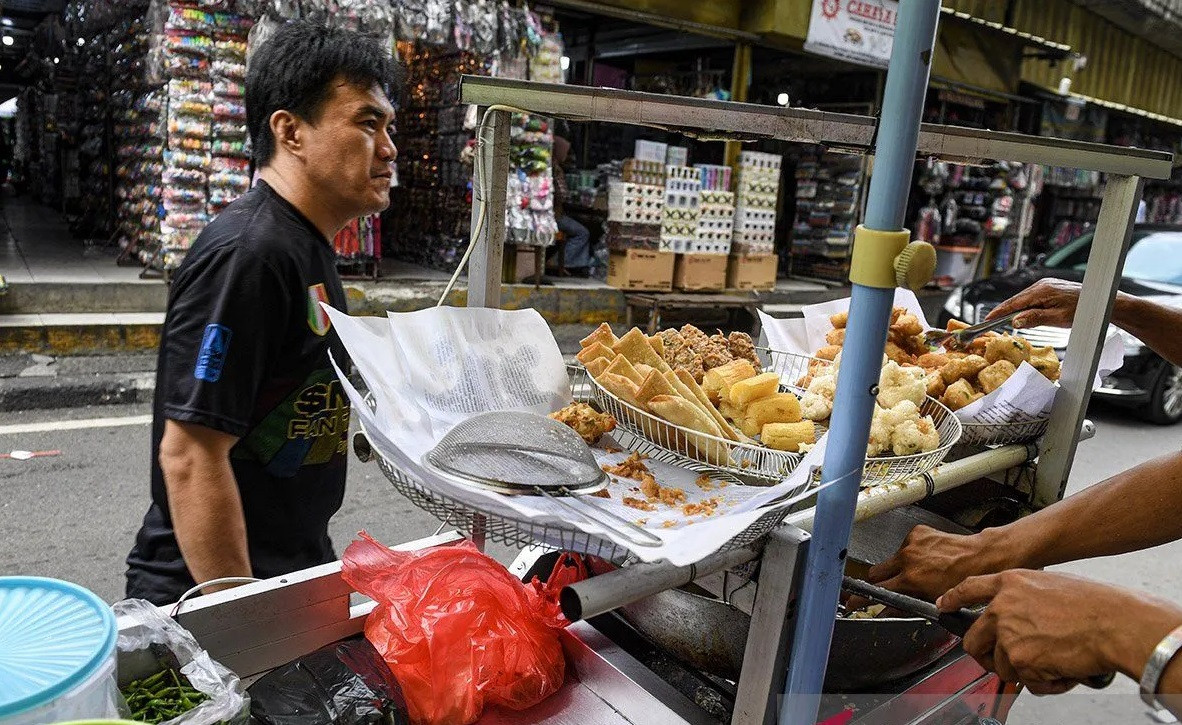Popular Reads
Top Results
Can't find what you're looking for?
View all search resultsPopular Reads
Top Results
Can't find what you're looking for?
View all search resultsEliminate trans fat for a healthier, more productive Indonesia
Data on trans fat content in Indonesia’s food supply show that almost 10 percent of foods tested exceeded the WHO-recommended threshold for trans fat, which for baked food products rose to an alarming 25 percent.
Change text size
Gift Premium Articles
to Anyone
I
ndustrially produced trans fat kills more than 278,000 people globally every year, including an estimated 5,000 people in Indonesia, mostly from heart attacks or strokes.
Harmful even in small amounts, industrially produced trans fat is commonly found in snack foods, baked goods, cooking oils and street foods such as martabak (pancake) and roti Maryam (flatbread), even though it can be eliminated without changing the cost, taste or availability of food.
In May of this year, the World Health Organization, in collaboration with the Southeast Asia Food and Agriculture Science and Technology Center at Bogor Agricultural University (IPB), released groundbreaking data on trans fat content in Indonesia’s food supply, with the aim of supporting decisive regulatory action. The findings show that almost 10 percent of foods tested exceeded the WHO-recommended threshold for trans fat, which for baked food products rose to an alarming 25 percent.
The good news? By adopting one of two WHO best-practice policies, either reducing trans fat to 2 percent of total fat content in all foods, or banning the production, import, sale and use of partially hydrogenated oil in all foods, Indonesia can achieve rapid, far-reaching change.
First, it would dramatically reduce trans fat-associated morbidity and mortality, a tragedy with a vast socio-economic impact that increases healthcare costs and reduces workforce participation and productivity. In the near-term, this would mean more health financing for more health priorities, and would accelerate overall social and economic development.
A 2015 cost-benefit analysis by the United States Department of Health and Human Services projected a US$130 billion net benefit in the US from lives saved and non-fatal illnesses prevented by removing toxic trans fat over a 20-year time period. Additional studies from Kenya, Nigeria, the United Kingdom, Argentina and the European Union have also shown that trans fat regulations save lives and are cost-saving to governments in the long-term.
Second, it would prevent a looming, and completely avoidable, health crisis. To date, 53 countries globally have adopted best-practice trans fat elimination policies, covering 3.7 billion people.
In the past four years, Brazil, India, Bangladesh, the Philippines, Turkey, Egypt, Mexico, Nigeria and Argentina have led the way, joining several of Indonesia’s neighbors, including Thailand and Singapore.
This leaves Indonesia, the world’s fourth-most populous country, uniquely vulnerable to becoming a dumping ground for trans fat-rich food products, imperiling not just the health of individuals but the country’s ambitious health and development agenda.
Tides are shifting, opportunities opening. With the passage last year of Indonesia’s new Health Law, legislators took a bold and much-needed step to actively address major risk factors for noncommunicable diseases (NCDs). The challenge now is to ensure that implementing legislation, currently being developed, includes specific measures to tackle unhealthy diets and achieve a healthier food environment.
Moreover, with the deadline in the country’s long-term plan for national development 2005–2025 fast approaching, and the next plan finalized and set to be applied, policymakers increasingly recognize the need to rapidly expand preventive and promotional health measures, including for NCDs, not just in health systems but in people’s everyday lives.
And with the forward-thinking focus of Indonesia’s national health transformation agenda, launched in 2022, the case for optimism becomes stronger still. The agenda specifically highlights the need for comprehensive health action to better prevent and control NCDs, the country’s number one cause of premature mortality.
Today, Indonesia has every chance to help eliminate trans fat globally by 2025, which the WHO will continue to support all countries to achieve.
What is needed now is strong national commitment backed by rapid regulatory action to eliminate trans fat once and for all. Together we can; together we must.
***
N. Paranietharan is the World Health Organization representative to Indonesia. Renu Garg is the senior vice president for Cardiovascular Health at Resolve to Save Lives (RTSL).











